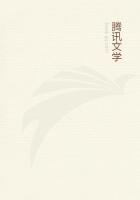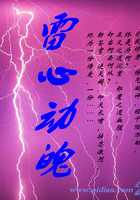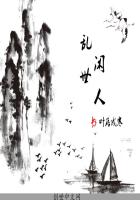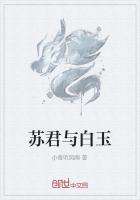ROGER BACON: AN APPRECIATION
IT has been said that "a prophet is not without honour, save in his own country." Thereto might be added, "and in his own time"; for, whilst there is continuity in time, there is also evolution, and England of to-day, for instance, is not the same country as England of the Middle Ages. In his own day ROGER BACON was accounted a magician, whose heretical views called for suppression by the Church. And for many a long day afterwards was he mainly remembered as a co-worker in the black art with Friar BUNGAY, who together with him constructed, by the aid of the devil and diabolical rites, a brazen head which should possess the power of speech--the experiment only failing through the negligence of an assistant.[1] Such was ROGER BACONin the memory of the later Middle Ages and many succeeding years;he was the typical alchemist, where that term carries with it the depth of disrepute, though indeed alchemy was for him but one, and that not the greatest, of many interests.
[1] The story, of course, is entirely fictitious. For further particulars see Sir J. E. SANDYS' essay on "Roger Bacon in English Literature,"in _Roger Bacon Essays_ (1914), referred to below.
Ilchester, in Somerset, claims the honour of being the place of ROGER BACON'Sbirth, which interesting and important event occurred, probably, in 1214.
Young BACON studied theology, philosophy, and what then passed under the name of "science," first at Oxford, then the centre of liberal thought, and afterwards at Paris, in the rigid orthodoxy of whose professors he found more to criticise than to admire. Whilst at Oxford he joined the Franciscan Order, and at Paris he is said, though this is probably an error, to have graduated as Doctor of Theology. During 1250-1256we find him back in England, no doubt engaged in study and teaching.
About the latter year, however, he is said to have been banished--on a charge of holding heterodox views and indulging in magical practices--to Paris, where he was kept in close confinement and forbidden to write.
Mr LITTLE,[1] however, believes this to be an error, based on a misreading of a passage in one of BACON'S works, and that ROGER was not imprisoned, but stricken with sickness. At any rate it is not improbable that some restrictions as to his writing were placed on him by his superiors of the Franciscan Order. In 1266 BACON received a letter from Pope CLEMENTasking him to send His Holiness his works in writing without delay.
This letter came as a most pleasant surprise to BACON; but he had nothing of importance written, and in great haste and excite-ment, therefore, he composed three works explicating his philosophy, the _Opus Majus_, the _Opus Minus_, and the _Opus Tertium_, which were completed and dispatched to the Pope by the end of the following year. This, as Mr ROWBOTTOM remarks, is "surely one of the literary feats of history, perhaps only surpassed by Swedenborg when he wrote six theological and philosophical treatises in one year."[1b]
[1] See his contribution, "On Roger Bacon's Life and Works,"to _Roger Bacon Essays_.
[1b] B. R. ROWBOTTOM: "Roger Bacon," _The Journal of the Alchemical Society_, vol. ii. (1914), p. 77.
The works appear to have been well received. We next find BACON at Oxford writing his _Compendium Studii Philosophiae_, in which work he indulged in some by no means unjust criticisms of the clergy, for which he fell under the condemnation of his order, and was imprisoned in 1277 on a charge of teaching "suspected novelties". In those days any knowledge of natural phenomena beyond that of the quasi-science of the times was regarded as magic, and no doubt some of ROGER BACON'S "suspected novelties"were of this nature; his recognition of the value of the writings of non-Christian moralists was, no doubt, another "suspected novelty".
Appeals for his release directed to the Pope proved fruitless, being frustrated by JEROME D'ASCOLI, General of the Franciscan Order, who shortly afterwards succeeded to the Holy See under the title of NICHOLAS IV. The latter died in 1292, whereupon RAYMOND GAUFREDI, who had been elected General of the Franciscan Order, and who, it is thought, was well disposed towards BACON, because of certain alchemical secrets the latter had revealed to him, ordered his release.
BACON returned to Oxford, where he wrote his last work, the _Compendium Studii Theologiae_. He died either in this year or in 1294.[1]
[1] For further details concerning BACON'S life, EMILE CHARLES: _Roger Bacon, sa Vie, ses Ouvrages, ses Doctrines_ (1861); J. H. BRIDGES: _The Life & Work of Roger Bacon, an Introduction to the Opus Majus_ (edited by H. G. JONES, 1914); and Mr A. G. LITTLE'S essay in _Roger Bacon Essays_, may be consulted.
It was not until the publication by Dr SAMUEL JEBB, in 1733, of the greater part of BACON'S _Opus Majus_, nearly four and a half centuries after his death, that anything like his rightful position in the history of philosophy began to be assigned to him. But let his spirit be no longer troubled, if it were ever troubled by neglect or slander, for the world, and first and foremost his own country, has paid him due honour.
His septcentenary was duly celebrated in 1914 at his _alma mater_, Oxford, his statue has there been raised as a memorial to his greatness, and savants have meted out praise to him in no grudging tones.[2] Indeed, a voice has here and there been heard depreciating his better-known namesake FRANCIS,[3]
so that the later luminary should not, standing in the way, obscure the light of the earlier; though, for my part, I would suggest that one need not be so one-eyed as to fail to see both lights at once.
[2] See _Roger Bacon, Essays contributed by various Writers on the Occasion of the Commemoration of the Seventh Centenary of his Birth_. Collected and edited by A. G. LITTLE (1914); also Sir J. E. SANDYS' _Roger Bacon_(from _The Proceedings of the British Association_, vol. vi., 1914).

